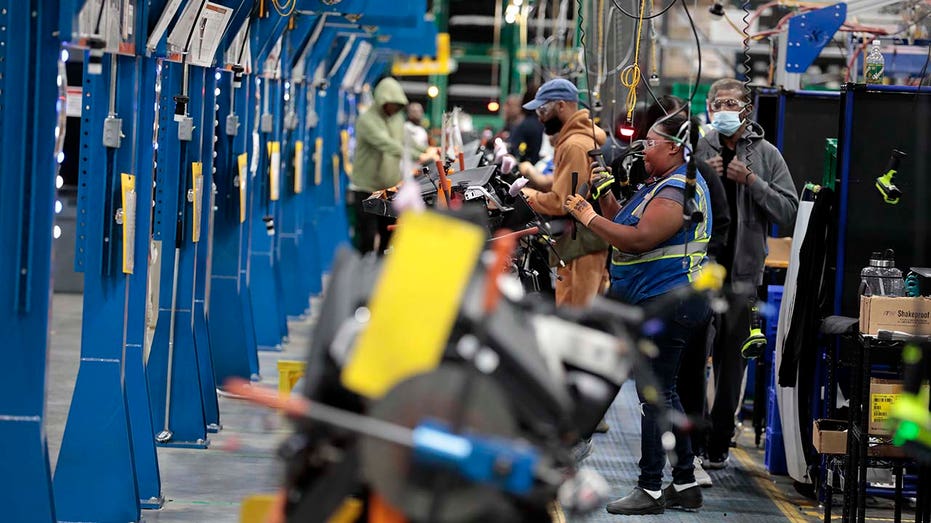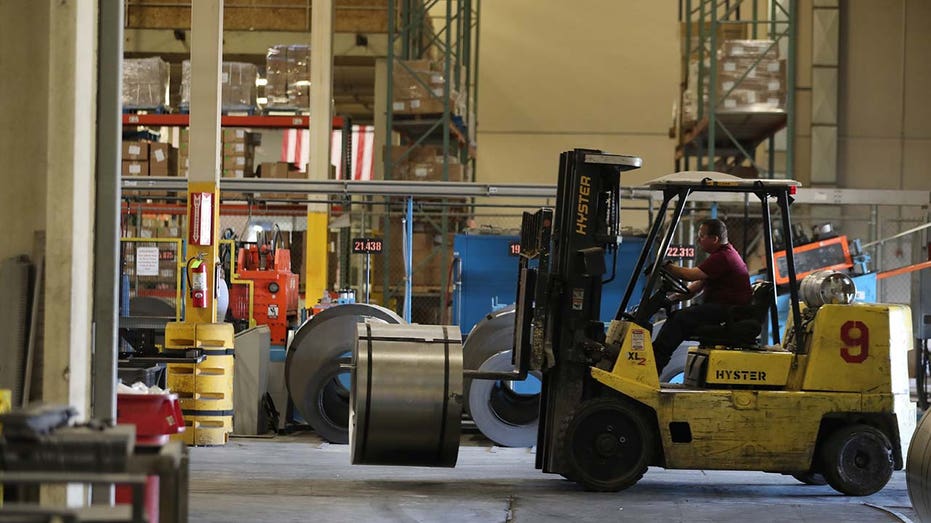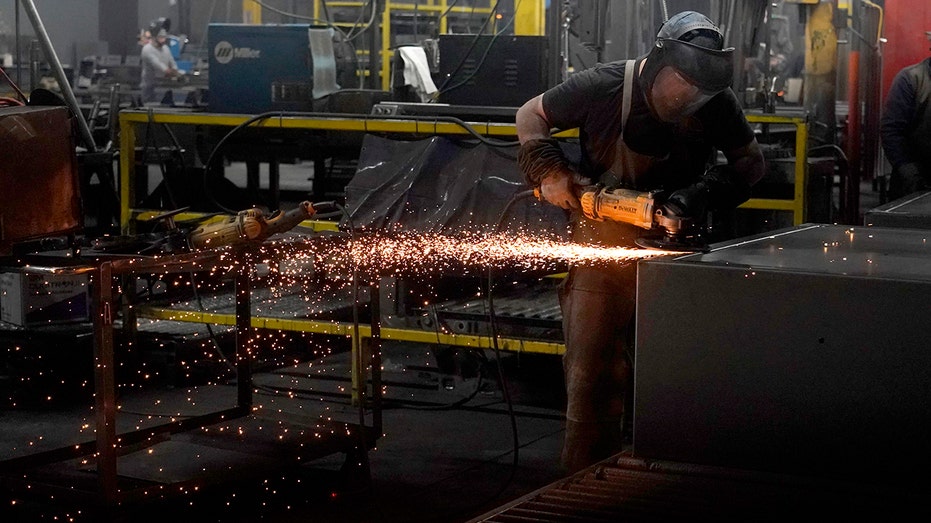US manufacturers call for action ahead of midterm elections
They called for action in tax policy and workplace development, among other areas
FOX Business Flash top headlines for September 19
Check out what's clicking on FoxBusiness.com
U.S. manufacturers, plagued by supply chain issues and near record-high inflation, demand action from politicians as the midterm elections rapidly approach.
The National Association of Manufacturers (NAM) on Sept. 13 released its "Competing to Win" agenda, calling for action in tax policy, workforce development and other areas to boost U.S. manufacturing competitiveness. NAM CEO Jay Timmons and board members also discussed the call to action plan in a call Monday afternoon.
MICRON TO INVEST $15 BILLION TO BUILD MEMORY MANUFACTURING FACTORY IN IDAHO
"Solving problems is what manufacturers do, but we need additional solutions from policymakers to ensure we can stay competitive and become more competitive, especially with the potential of a recession looming," Chuck Wetherington, president of BTE Technology, said during the call Monday.

Employees work on the assembly line at the Dakkota Integrated Systems manufacturing facility in Detroit, Michigan, U.S., on Thursday, May 5, 2022. Dakkota Integrated Systems is a Native American, Woman-Owned Company that manufactures Instrument Panel (Photographer: Jeff Kowalsky/Bloomberg via Getty Images / Getty Images)
Gross domestic product fell the first two quarters of 2022. Wholesale Inflation remained high in August, with the annual figure rising 8.7% from a year ago, according to Labor Department data.
WHOLESALE INFLATION DECLINES IN AUGUST, BUT PRICES REMAIN NEAR MULTI-DECADE HIGH
One area in which the NAM has called for elected leaders to take action is workforce development. Labor shortages in the manufacturing sector are a "long-term problem," Wetherington said Monday.
Both Wetherington and Greene Tweed Vice President of Operations Fernando Torres said manufacturers have been working to "upskill" existing workers and attract new ones.
To address sector-wide workforce challenges, the NAM has called for expanding the Pell Grant programs to "include short-term or accelerated education models" and for investing in apprenticeship and "earn-and-learn" programs. The amount of tax-exempt educational assistance employers can offer workers should be upped to $11,000 annually, the group argued in its plan.
The NAM has also said immigration reform can help address workforce challenges, calling for politicians to increase employment-based immigration as a percentage of green cards and to change nonimmigrant visas and temporary worker programs.

A worker operates a forklift to move bulk rolled steel at the Liberty Safe & Security Products Inc. manufacturing facility in Payson, Utah, U.S., on Wednesday, Aug. 29, 2018. The U.S. Census Bureau is expected to release durable goods orders (Photographer: George Frey/Bloomberg via Getty Images / Getty Images)
Meanwhile, the association has said new tax incentives and other tax provisions would also help encourage U.S. manufacturing competitiveness and investment.
As an example, one board member pointed to provisions in the CHIPS and Science Act, which allocates over $52 billion for domestic semiconductor research, development, manufacturing and workplace development and provides tax credits to encourage investments in chip manufacturing.
Three areas of tax policy that are important for manufacturers are the research and development (R&D) tax credit, the ability to expense R&D and capital investments and business interest deductions, Timmons said during the call.

PAYSON, UT - MARCH 22: A worker grinds a weld on a safe that is being manufactured at Liberty Safe Company on March 22, 2022 in Payson, Utah. Liberty Safe has struggled with supply constraints and price increases in their materials used in manufactur ((Photo by George Frey/Getty Images) / Getty Images)
Additionally, the NAM has called for expanding and making permanent the tax deduction for business income earned "through a pass-through entity" and for keeping tax rates for profits "low and competitive."
Ketchie President and Owner Courtney Silver said lawmakers making changes in tax policy could help prevent small manufacturers from feeling "stuck between a rock and a hard place" when making decisions about company investments.
CLICK HERE TO READ MORE ON FOX BUSINESS
"It's very important that we take action on expanding and locking in that pass-through deduction, increasing those incentives around R&D and protecting those provisions around full expensing and interest deductibility," she said.




















